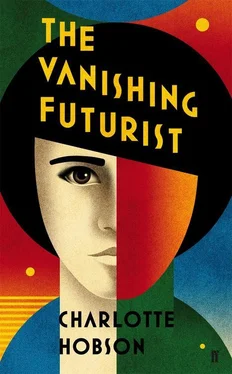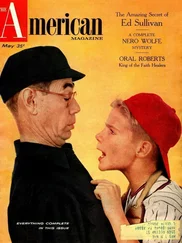Some evenings we managed to hire a horse to draw the PropMash to its location of the day; occasionally we all dragged it together – it wasn’t too heavy with eight or so of us pulling. Immediately a crowd of noisy, excited children would gather. We didn’t plan a venue, just stopped in whichever yard or park that Slavkin chose, but the lack of publicity made no difference. The street kids did that work for us, shouting into every house we passed, ‘The PropMash is coming!’ The queues soon stretched down the street.
‘Our medicine has an advantage over bacterial inoculation,’ Slavkin would announce benevolently to the crowd. He wore a doctor’s coat with a pair of pliers in the pocket and some nasty brownish stains here and there. ‘Ours is highly infectious. Each inoculation achieved here today should spread to a further forty or fifty. At this rate we’ll cover the entire Russian population in a hundred and seven and a half working days!’
We stacked up the gramophone records and filled the olfactory pumps with scents, loaded the films and rigged up a curtained cubicle around the Machine. We charged a rouble per vaccination, although we waived the fee for almost everyone except prosperous-looking people (and there were few enough of those).
‘Be aware,’ boomed Slavkin, drawing himself up to several inches above his full height by means of an inconspicuous cardboard box. ‘Once initiated, the process of vaccination cannot be interrupted under any circumstances. We cannot let you out, you must simply endure until the end. Otherwise it may have serious consequences. Do not attempt this if you have weak nerves or any other debilitating condition.’
The people in the queue shivered in pleasurable anticipation at these remarks and settled contentedly down to wait. They had no view of the Machine and could hear only muffled sound effects, including, occasionally, the screams and yells of the patient undergoing vaccination. These, too, seemed to increase their eagerness for their turn.
Each patient climbed up into the landau and squeezed in through the door. Once he or she was in the seat we fastened the straps and lowered the heavy metal helmet. Then the inoculation began. The temperature was slowly raised to that of a steam bath. The film began – a crude attempt at the technique Eisenstein would later develop – images inside a factory were cut with some unpleasant scenes at a slaughterhouse, and some of us dressed as high capitalists forcing our servants to grovel under the table. Volodya, as one of the servants, rather spoilt this part by grinning at the camera. More scenes from the factory, fainting workmen, emaciated children, cut with close-ups of babies crying, priests performing a burial and a piece of meat being fought over by stray dogs, and suddenly – the crisis of High Capitalism, a scene of hell given added shock value by us drumming the outside of the Machine and shouting down the ventilation tube. Then the olfactory pumps would switch from charred rubber, rotten meat, petrol and so on to the soothing scent of bread and grass, and a gentle breeze would dissipate the boiling heat of the factory that they had been trapped in. Abstract images of great beauty, simplicity and power were interspersed with images that dwelt on construction, brotherhood and harmony. The words of Lenin and Gorky could be heard at first in the distance, so one strained to catch what they were saying; then they slowly came closer, speaking in low, conversational tones; explaining simply and kindly what Socialism meant for all of us, for the individual. ‘Henceforth, no one need feel in the wrong’ is a phrase that stuck with me. ‘Guilt is not a Socialist emotion.’
The patients, reeling and dazed as they emerged from the Machine, were led to a small roped-off seating area known as No Man’s Land for at least ten minutes’ recovery time. Suitable reading materials were handed out. They were usually eager to talk the experience over with others, and ‘PropMash Friendships’ became a well-known after-effect. There were even some ‘PropMash Marriages’, apparently. Dozens had to be stopped from just walking straight back around to the end of the queue. ‘But I love it,’ I remember one wailing. ‘I want it!’
The most ardent supporters of the Machine were Slavkin’s friends in the avant-garde. Early on the artist Tatlin was inoculated, and raved about it to his friends, bringing a crowd the next day that included Popova, Stepanova and others. They dragged Slavkin out into the crowd and gave him three cheers. Nikita, typically, blushed and didn’t know what to say, especially when the poet Bryusov launched into criticism of the exterior of the Machine: ‘Where are the clean lines, where is the modern approach here, my dear friend? If it must be mammary, at least you might aim for a firm young bosom rather than this squashy old teat!’
Nikita, who hadn’t given much thought to the exterior of the Machine, muttered, ‘I suppose it’s a mother.’
Tatlin laughed, delighted. ‘Yes – a monument to the Mother who feeds us all! PropMasha, perhaps.’
Mayakovsky, who was filming in Petrograd at the time, came later and charmed everyone in the queue. He scribbled a chastushka , a little two-line rhyme:
Slavkin has found out what’s best –
To the future in a breast!
Thanks to all of this, Slavkin became quite well known, and at the IRT the trickle of curious visitors and fans grew to a stream. For a time we got no peace. Then Volodya fixed a lock on the gate and found an orphan, Kolenka, from the gaggle around the Machine one night. Kolenka’s job was to answer the doorbell and ask for a password before letting anyone in. If a guest did not know the password, he announced very fiercely, ‘The IRT are labouring in the red-hot forge of Revolution!’ and did not open. He turned away not only fans, but also inconvenient visitors like Prig, who returned several times with resettlement plans. Every now and again Kolenka wandered off to play somewhere and then we had to climb through the rotten plank at the end of the garden, but apart from that it worked well. He became a member of the commune, ate with us in the evenings and slept in the men’s dormitory, and seemed to grow several inches a month.
In short, the Propaganda Machine was a triumph – in all ways but one. Slavkin’s great wish was to win government support for it. He envisaged a future in which it was put into mass production and distributed across the country. But the Party leadership itself – unsurprisingly – was otherwise engaged. Each member of the Ispolkom was sent a personal invitation to the PropMash, which they ignored. Finally, at the behest of his artist friends, Anatoly Lunacharsky, Pasha’s boss at the Commissariat of Enlightenment, consented to a vaccination. He talked briefly with Slavkin; Nikita was nervous and distracted; he kept rubbing his hands together, blinking and laughing oddly. I could see that Lunacharsky thought him strange. There was a long, awkward pause and then he said, ‘Well, is it time?’
‘Yes, yes…’ Slavkin leapt forward to help him up, banging his head on the landau. Lunacharsky – who was quite tall – compressed himself into the space and we began the inoculation. When he finally emerged he was smiling in a restrained way. He put on his hat and shook Slavkin’s hand. ‘Let me congratulate you on a very fine piece of circus,’ he said. ‘Such things are still important.’
‘Circus? Not just… not only…’ stammered Nikita.
‘Really?’
‘We are administering a vaccination! A permanent immunity to bourgeois attitudes!’
‘I do congratulate you,’ murmured Lunacharsky, ‘and admire what you have done.’ He said it with the smiling charm for which he was famous, but the dismissal, nonetheless, was firm. ‘And I hear that your work on iridium alloys is remarkable,’ he added.
Читать дальше





![Майкл Муркок - Спящая волшебница / The Sleeping Sorceress [= Участь Белого Волка, Рыцарь Хаоса, The Vanishing Tower]](/books/327544/majkl-murkok-spyachaya-volshebnica-the-sleeping-sorc-thumb.webp)






